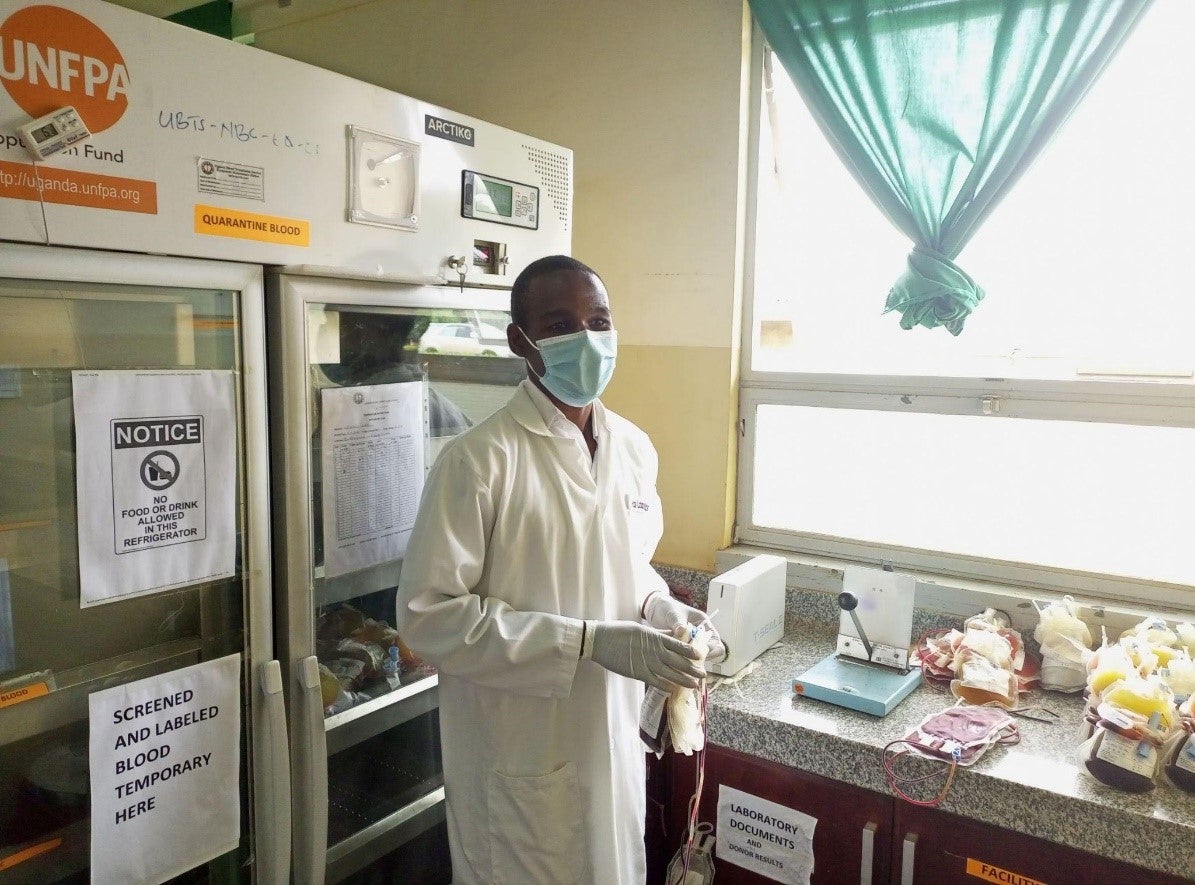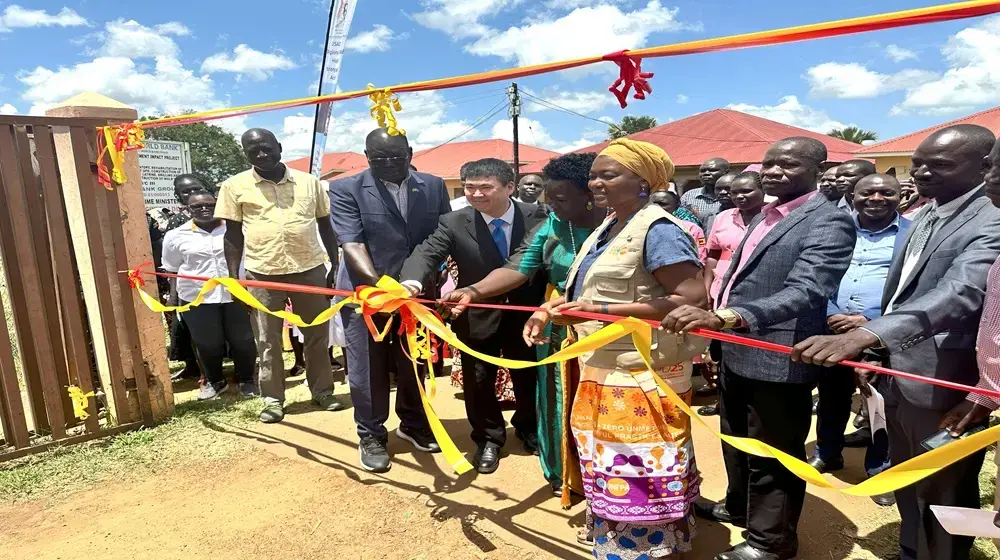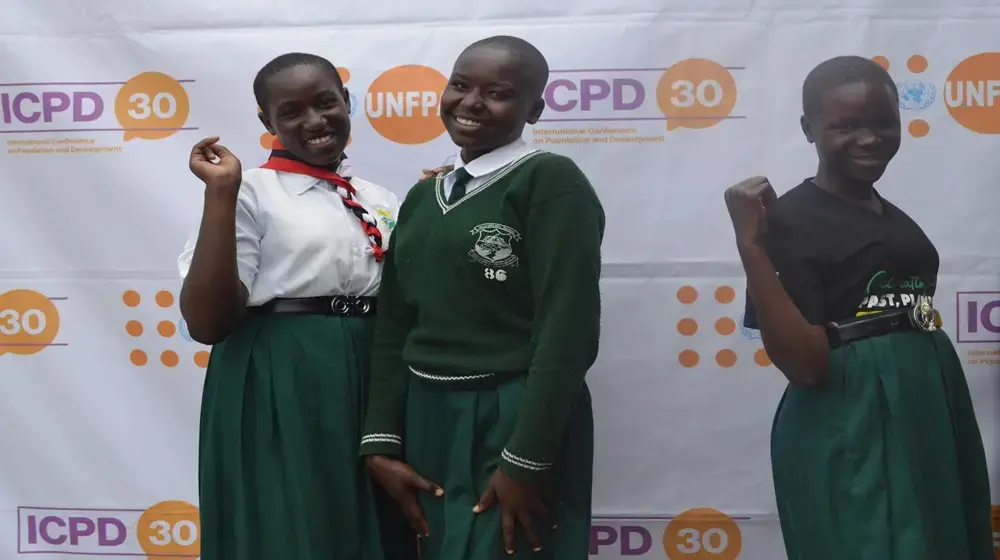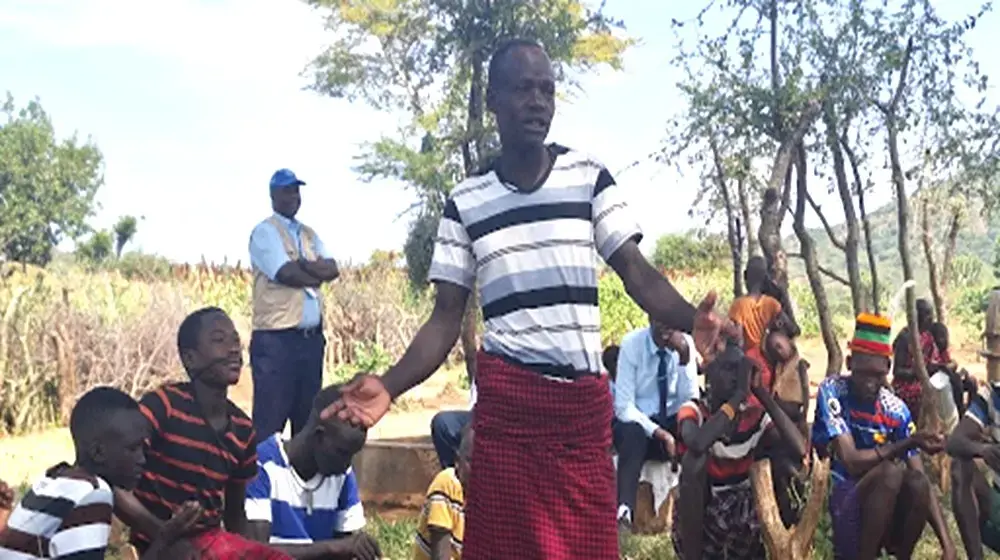NEBBI, Uganda – Fosca Ayorwoth gave birth to a bouncing baby girl by cesarean section at St. Luke Hospital, Angal in her local district of Nebbi in northwestern Uganda.
Ten days after giving birth, the 25-year-old mother of six nearly died from postpartum haemorrhage (PPH), severe bleeding that can occur within 24 hours to 12 weeks after delivery.
“I was discharged from hospital and went home. After three days at home, heavy bleeding started and I was rushed back to the hospital. The doctors referred me here (Nebbi General Hospital) for blood transfusion,” says Ayorwoth who delivered on June 29 2022.
Ayorwoth was transfused with two units of blood initially; the bleeding stopped briefly but later continued. She was rushed to the theatre for an emergency operation. The doctors removed her uterus in order to stop the bleeding and save her life. Ayorwoth was transfused with a total of seven units of blood, something that could not have happened one year ago at Nebbi General Hospital due to a shortage of blood products, caused by lack of equipment to collect and store blood.
Post-partum haemorrhage is the leading cause of maternal deaths in Uganda. According to hospital statistics, eight out of 13 maternal deaths that occurred in Nebbi Hospital between July 2020 and June 2021, were due to postpartum hemorrhage and lack of blood for transfusion.
As a way to help address this problem, the Ministry of Health and partners including UNFPA implement interventions including ensuring availability of blood and blood products to transfuse women that experience severe bleeding after delivery.
However, ensuring full availability of these supplies is still a challenge, due to several factors including long distances to collection centres, frequent stock outs of blood screening reagents and lack of appropriate equipment to collect and store blood and blood products.
Nebbi Hospital was no different.
Health workers from the hospital previously had to make the long journey to Arua (70 kilometres) and Gulu regional referral hospitals (248kilometres) to access blood products. Given that the two regional hospitals serve several health facilities, stock-out of blood products was frequent, according to Dr. Jackline Akello, Nebbi Hospital medical superintendent
With funding from The Royal Embassy of the Netherlands, UNFPA, under the Advancing Sexual and Reproductive Health and Rights (ANSWER) Programme, procured a refrigerator, a freezer and cold boxes to strengthen the capacity of Nebbi Hospital to collect, process and distribute blood as one of the strategies to save mothers’ lives.
The availability of blood and other products at the hospital has helped improve capacity to provide maternal health services including provision of safe blood transfusion services.
“I am so grateful the doctors managed to save my life. I thank God that the blood for transfusion was readily available. Otherwise I would have died,” said Ayorwoth from her High Dependency Unit bed.

“The availability of this equipment has improved blood collection, storage and transportation in the greater Nebbi area,” says Dr. Dorothy Kyeyune Byabazaire, director of Uganda Blood Transfusion Service.
Meanwhile Dr. Akello notes, the blood bank has had tremendous impact on the community; improving service delivery and reducing cases of maternal deaths due to severe anemia and postpartum hemorrhage.
“We have ably managed our cases of PPH. In terms of maternal child health, we haven’t lost a mother due to lack of blood or shortage of blood products since December 2021 when our blood bank was revamped,” says Akello.
“We used to refer patients to Arua Regional Hospital and when we did that, some opted to go home and die. Very few would accept the referral. Now we don’t refer patients in need of blood transfusion. We offer all services here,” she says.
Nebbi Hospital now supplies blood to three health Center IVs of Warr, Pakwach and Madi-Okollo, as well as Nyapea and Angal Hospitals. The Hospital also serves as a referral point for the districts of Zombo, Madi-Okollo, Pakwach and Buliisa that have no blood collection and distribution centres or blood banks.
Supporting availability of blood and blood products is only one of serval ongoing interventions that UNFPA – through the Government of Uganda – is undertaking to ensure provision of quality maternal health services to save women’s lives.
“Women in Uganda still die during pregnancy and childbirth due to preventable causes,” said Dr. Mary Otieno, UNFPA Uganda Representative.
“We will continue to support high-impact interventions to ensure the provision of quality maternal and new-born health care, from pre-pregnancy, antenatal, labour and delivery, as well as postpartum and neonatal periods,” she said.
Written by Samuel Okiror





